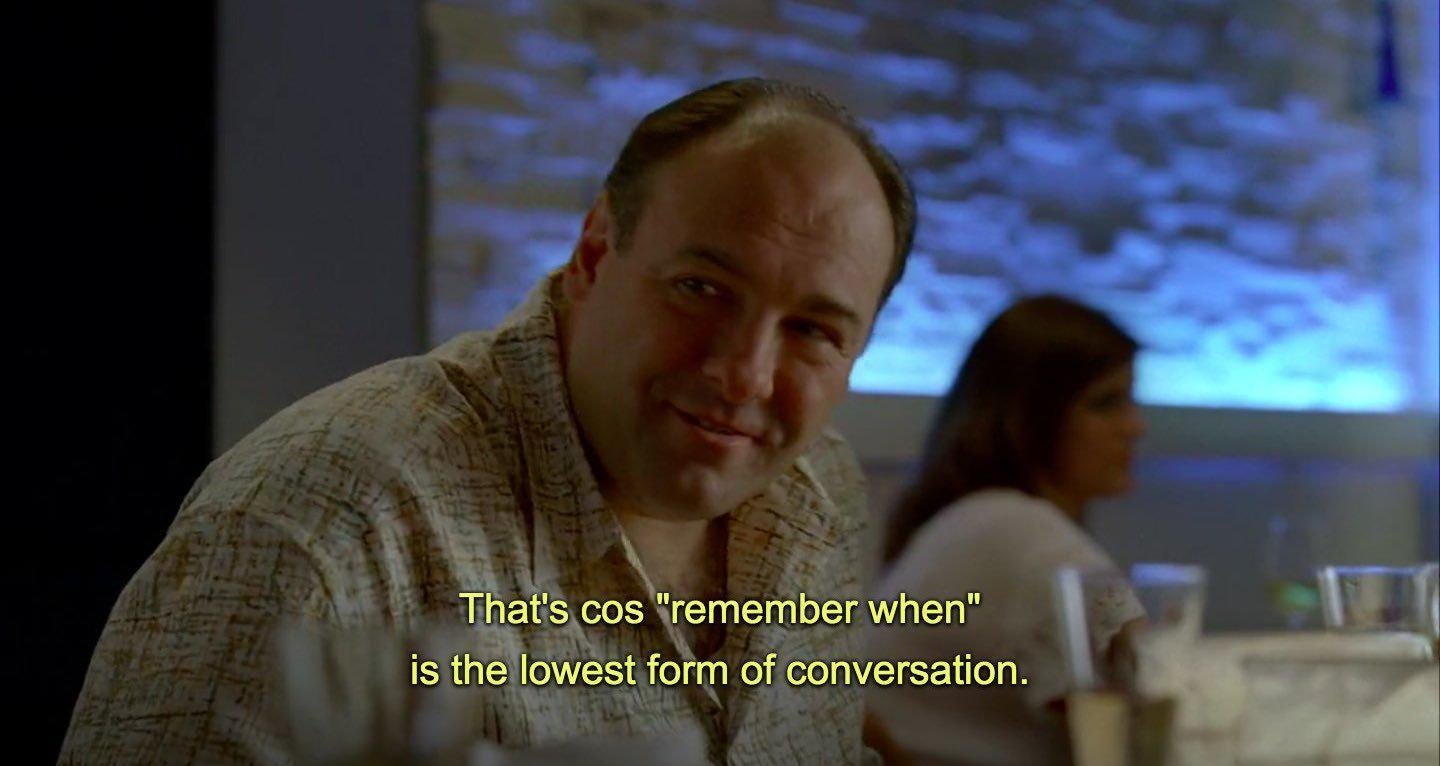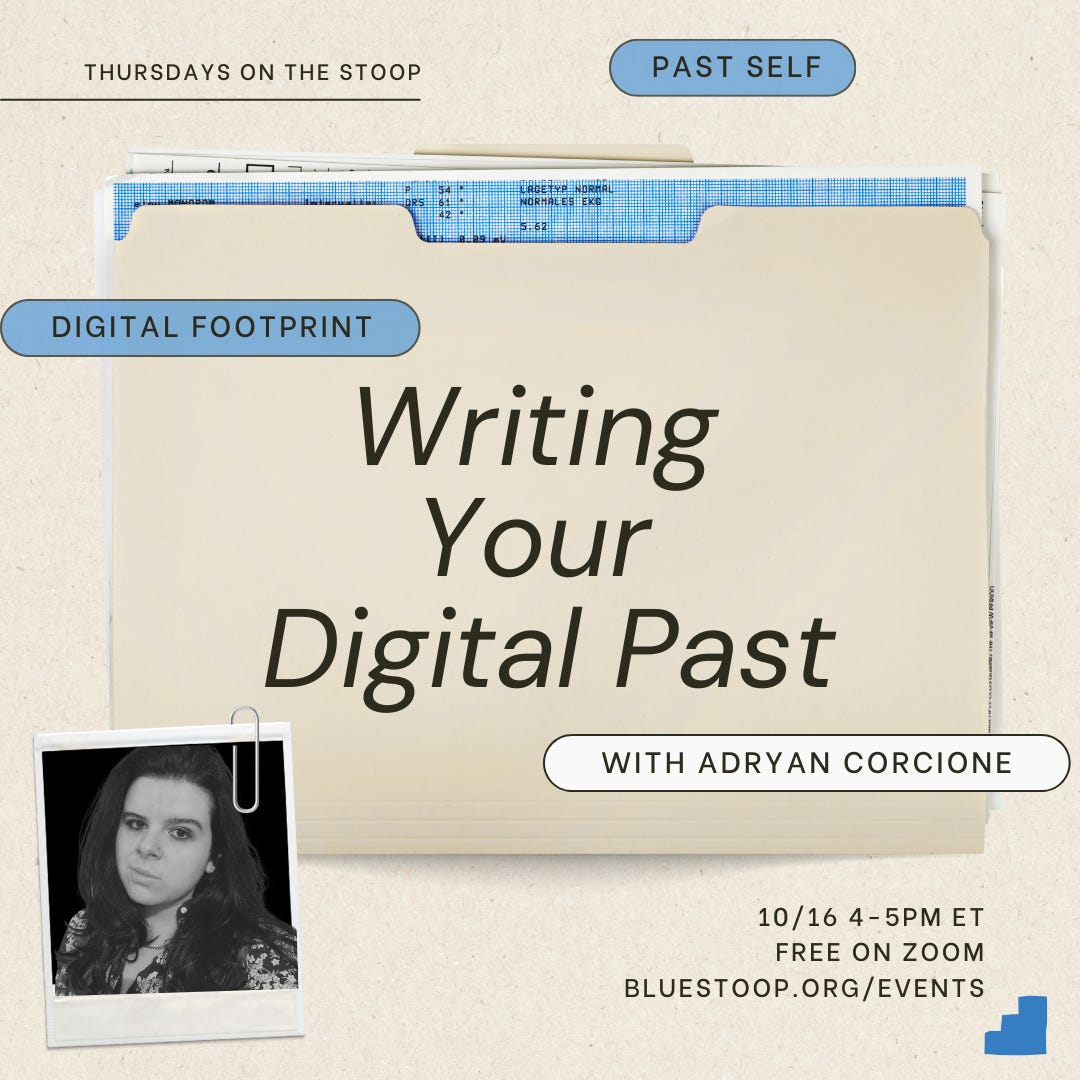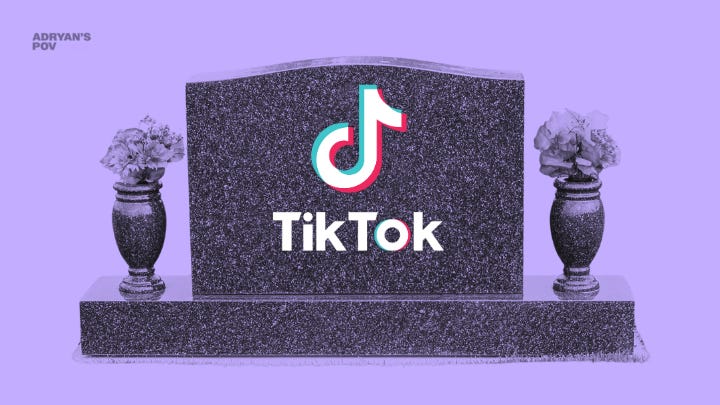Is “remember when” the lowest form of writing?
Hear me out
Fun news: I’m teaching a FREE writing workshop, Writing Your Digital Past, next Thursday 10/16 at 4pm EST. It’ll be a generative workshop on Zoom using social media as inspiration for writing. Sign up through Blue Stoop here!
In “Remember When” (S6 E15) of The Sopranos, Tony Soprano and Paulie Walnuts drive to Miami to flee New Jersey after the FBI finds the body of Tony’s first murder. Out in public in a club, Paulie reminisces on old memories to strangers over drinks, just like he does throughout the series: “Heh heh.”
However, Paulie shouldn’t be bringing attention to himself; he and Tony need to lay low amidst the federal investigation, which is the whole point of their trip. It’s the next moment where a classically agitated Tony recites the line that has since been memeified all across the internet: “‘Remember when’ is the lowest form of conversation.”
I feel for Paulie here. Admittedly, I’m the “remember when” friend out of my friend group. While I love creating new memories foremost, I equally love reminiscing on old memories. I attribute this to being a personal essayist and memoirist because ultimately, memory (or “remember when”-ing) is what informs my writing.
However, reminiscing on old memories without creating new ones can stall any kind of relationship, especially for people you don’t see often or aren’t especially close to. It can even stall your writing! Thematically, Tony compartmentalizes his relationships at a distance, perhaps something critical for any mob boss. The deeper he goes into mob life, the less authentic and vulnerable he is even with his supposedly close friends like Paulie. This is contrary to the very vulnerability required for memoir and personal essay writing. “Remember when” without clairvoyance of the present can be a disservice to our readerss and even ourselves.
In my opinion, though, the quote is too often taken too literally by the memes. “Paulie could have said anything at that moment and he would get the same type of reaction,” explains reddit user 1964Bordeau. “‘’Remember when’ ’was just the unlucky victim. Sometimes you have to go to the “remember when” route, I do it all the time in discussions. Doesn’t mean I don’t live for today. Tony was in one of his cunty moods.” At the moment, Tony just needed a snarky comeback for Paulie. It’s not that deep.
Memory is what fuels memoir. It’s critical to the genre. As someone who extensively reads memoir, I do consider “remember when” to be a high form of writing, particularly when paired with insight from the present.
Not everyone has the memory to be a “remember when” kind of person or writer—or even memoirist or personal essayist. That’s okay. I have a trick for this, even for someone with a vivid memory like me: digital artifacts!
Digital artifacts are old posts, multimedia, and other content from social media platforms. A Facebook post, an old blog entry, a photo they were tagged in, or even an imagined post from your younger self can serve as an artifact to inform personal essay or memoir writing.
Interested in learning how to use social media archives to fuel your memoir/personal essay writing? Do I have the perfect opportunity for you!
Next week, I’m teaching a generative writing workshop called Writing Your Digital Past. In this free hour-long Zoom session, participants will reflect on a personal digital artifact. Together, we’ll explore how our digital footprints capture our past selves, and how writing can help us reconnect with, challenge, or honor those versions.
If this sounds interesting to you, join me next Thursday 10/16 at 4pm EST. Sign up through Blue Stoop here. Again, this workshop is entirely free and virtual! See you there!
Related reading
How our social media data tells stories
Back in September, I tried reaching out to an estranged ex only to find his obituary from July.






Love this!